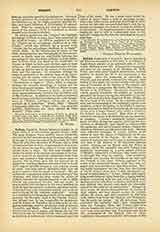

Lead, DIOCESE of (LEADENSIS), which was established on August 6, 1902, comprises all that part of the State of South Dakota (U.S.A.) west of the Missouri River—an area of 41,759 square miles. The residence of the bishop is at Hot Springs. The territory taken to form the diocese had previously belonged to the Vicariate Apostolic of Nebraska, and had in 1902 a Catholic population of about 6000, including the Catholic Indians of the Sioux Reservations. As first bishop, the Very Rev. John N. Stariha, Vicar-General of the Archdiocese of St. Paul, was chosen and consecrated in St. Paul, October 28, 1902. He was born in the Province of Krain (Carniola), Austria, May 12, 1845. Migrating to the United States he became affiliated to the Diocese of St. Paul, where for many years he was pastor of the Church of St. Francis de Sales. The opening of the Rosebud Reservation to settlers and the extension of railways across the state attracted many emigrants to South Dakota, and a number of new parishes were established, churches erected in these new towns, and missions and schools located among the Indians. In 1909, Bishop Stariha’s ill-health and age determined him to resign the see, and he returned to his old home in Austria on May 1 of that year. On April 11, 1910, Pius X ratified the appointment of the Rev. Joseph F. Busch, of Excelsior, Minnesota, as bishop. The religious communities in the diocese include the Jesuit and Benedictine Fathers and the Benedictine Sisters and the Sisters of St. Francis. Statistics (1909): priests, 25 (regulars, 9); churches with resident priests, 18; missions with churches, 35; schools, 5; pupils, 1030; 1 orphan asylum, 24 inmates; Catholic population, 11,000 whites and 6500 Indians.
THOMAS F. MEEHAN

